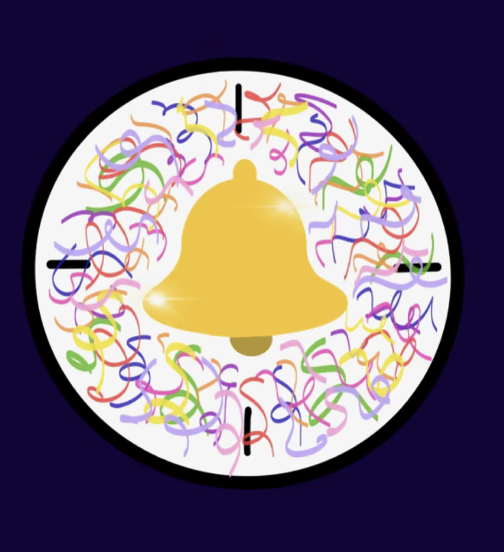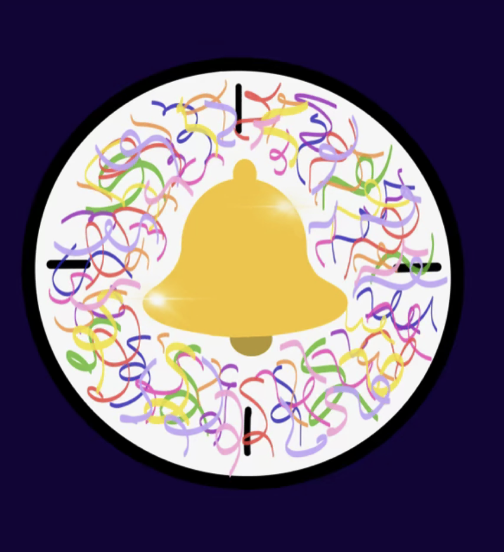
The clock strikes midnight, your carriage isn’t becoming a pumpkin, rather millions of people are united in a one-minute celebration of new beginnings. The evening of Dec. 31, around the world there’s a pause, a new beginning. While New Year’s Eve may go unrecognized by many as one of the best winter celebrations, it deserves more recognition for all that it offers. With so much of our time spent focused on one thing after the next, this transition into the new year provides a unique opportunity for our highly polarized society to be united in reflection.
The celebration of ringing in the new year dates back to the 1500s. According to Britannica, “The date was chosen partly in honor of Janus, the Roman god of beginnings and the month’s namesake. Though medieval Christians attempted to replace January 1 with more religiously significant dates, Pope Gregory XIII created a revised calendar that officially established January 1 as New Year’s Day in 1582.” Overtime, the observance was adopted throughout Europe and beyond.
New Year’s Eve, while widely celebrated, is only one of many New Year celebrations. For religions and cultures that utilize other calendars, the New Year holiday falls on dates other than Jan. 1. For example, those who follow the lunar calendar celebrate the new year on other days. The Jewish religious calendar names Rosh Hashana as the start of the new year, which usually falls in September or early October. The Hijri, or Muslim calendar, typically has 354 days, with the new year starting in the month of Muharram. The Chinese New Year is celebrated for several days in late January or early February starting on the day of the new moon. Many other cultures celebrate the New Year outside of Jan. 1, however the overall concept of New Year’s remains the same— a celebration of new beginnings and time to reflect.
Moving from one year to the next, New Year’s Eve and New Year’s Day provide an opportunity for self reflection. As many look back on the past 365 days, actions and attitudes are viewed in a different light. With a present opportunity for change, this celebration allows the perfect opportunity to reflect and determine what you want to bring with you into the new year and what you’re ready to leave in the previous year. With the daunting task of starting new habits, changing your lifestyle, or setting goals, the New Year can be a simple time marker to track progress or to eliminate the perpetual “setting off” of decisions and the start of goals.
This moment to pause gives space for you to act with intention. Filled with contemplation, these 24 hours are used to think about changes you want to make to your life in the new year, and are perfect for setting intentions. While they aren’t tangible action steps, intentions are a great way to think about how, moving forward, you want to feel or act as a person more generally.
New Year’s celebrations are meaningful not only if you stay consistent and true to the reflection and movement throughout the new year, but also to acknowledge that things might not work out perfectly. While you may try new things and push yourself to reach goals, it’s perfectly okay to know your limits and stop striving for the goals you set at the beginning of January. With some manageable and others idealistic, goals are meant to change and adapt overtime with you.
With the new year just around the corner and countdowns on the horizon, it’s time to get ready for one of the best celebrations this winter season. Take a moment to pause and reflect on what has gone well and what you want to work on moving into the new year. No matter how or when you celebrate the New Year, I wish you the best transitions into the new year and the experiences the year may bring you.


































